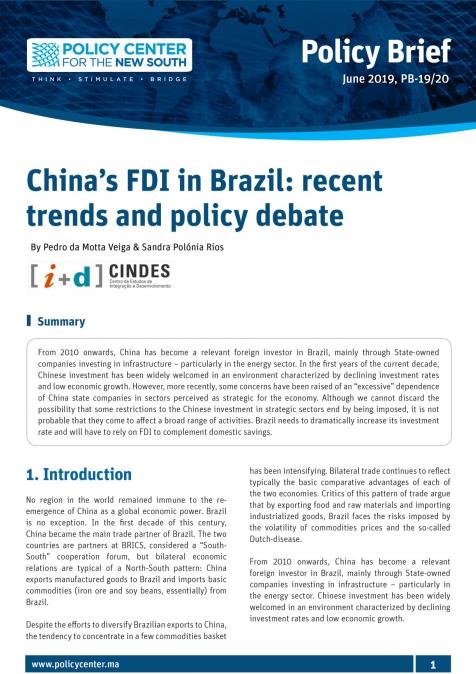Publications /
Policy Brief
From 2010 onwards, China has become a relevant foreign investor in Brazil, mainly through State-owned companies investing in infrastructure – particularly in the energy sector. In the first years of the current decade, Chinese investment has been widely welcomed in an environment characterized by declining investment rates and low economic growth. However, more recently, some concerns have been raised of an “excessive” dependence of China state companies in sectors perceived as strategic for the economy. Although we cannot discard the possibility that some restrictions to the Chinese investment in strategic sectors end by being imposed, it is not probable that they come to affect a broad range of activities. Brazil needs to dramatically increase its investment rate and will have to rely on FDI to complement domestic savings.


